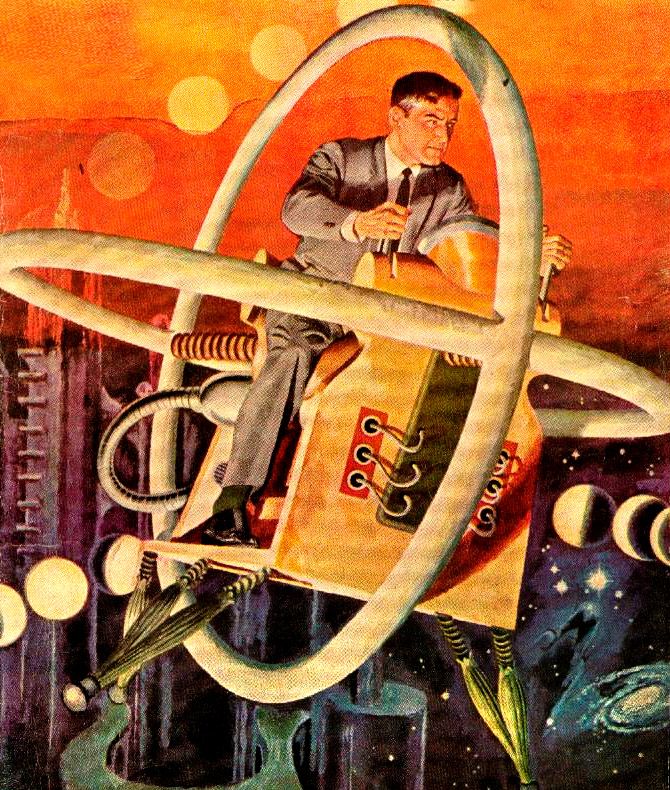One thing I know for sure about the future is that it won’t be a utopia–we’ll see to that. Tomorrow will be only as good as humans are, and we tend to stink up the joint.
However, major changes will come to life, especially city life, in the short run, because we’re on the precipice of game-changing technological innovations. If driverless, for instance, is really perfected in the next 25 years or so, the nature of urban life is remade, and car ownership will become ever-more optional. Our world will be a greener and more convenient thing, but I’m willing to bet it won’t all be electric bicycles and vertical gardens.
From Marco della Cava in USA Today:
So what could a successfully networked city of the transportation near-future look like? Picture this.
You wake up and open an app that tells you how to leverage the city’s various transit options to get to your appointment. Maybe it’s a walk to a bicycle, which you pedal to a bus. Or an autonomous taxi to the downtown perimeter to hail a ride-hailing service, driven by a human. Or borrowing a car that belongs to your apartment building’s small fleet.
Once outside, you’ll notice community gardens and playgrounds where parking lots once stood. The air will be cleaner and you might hear birds chirp, both due to the preponderance of electric vehicles. Emergency vehicle sirens are less common as automotive accidents decline thanks to on-board car sensors that track moving objects and humans. Trucks don’t crowd the streets because deliveries are made at night by self-driving vehicles.
“In many ways, we’ll be moving back toward the city of the past, and much like in the 18th century we’ll be designing around people who are walking, biking and even growing their own food,” says Gabe Klein, author of Start-Up City: Inspiring Public and Private Entrepreneurship, Getting Projects Done, and Having Fun.
In less than two decades, researchers say cities could become safer for pedestrians and cyclists and what cars do exist will be small, electric and largely driverless. Under this optimistic forecast, public transit will be efficient, and smart traffic signals will keep the system moving along.
Not that this vision is either guaranteed or without potentially damaging potholes.•
Tags: Marco della Cava

